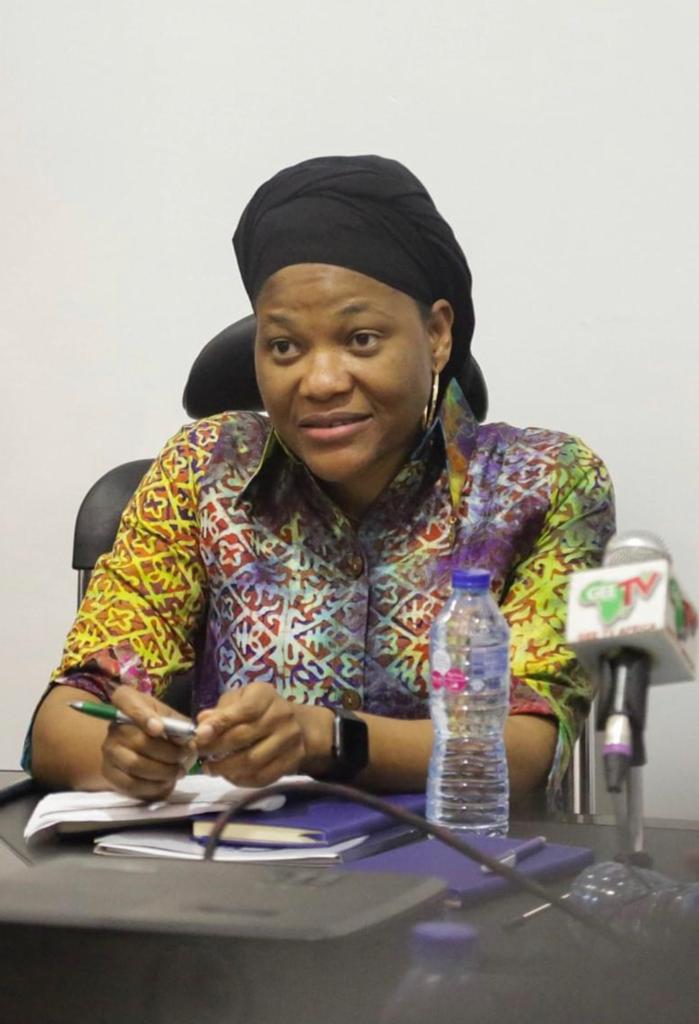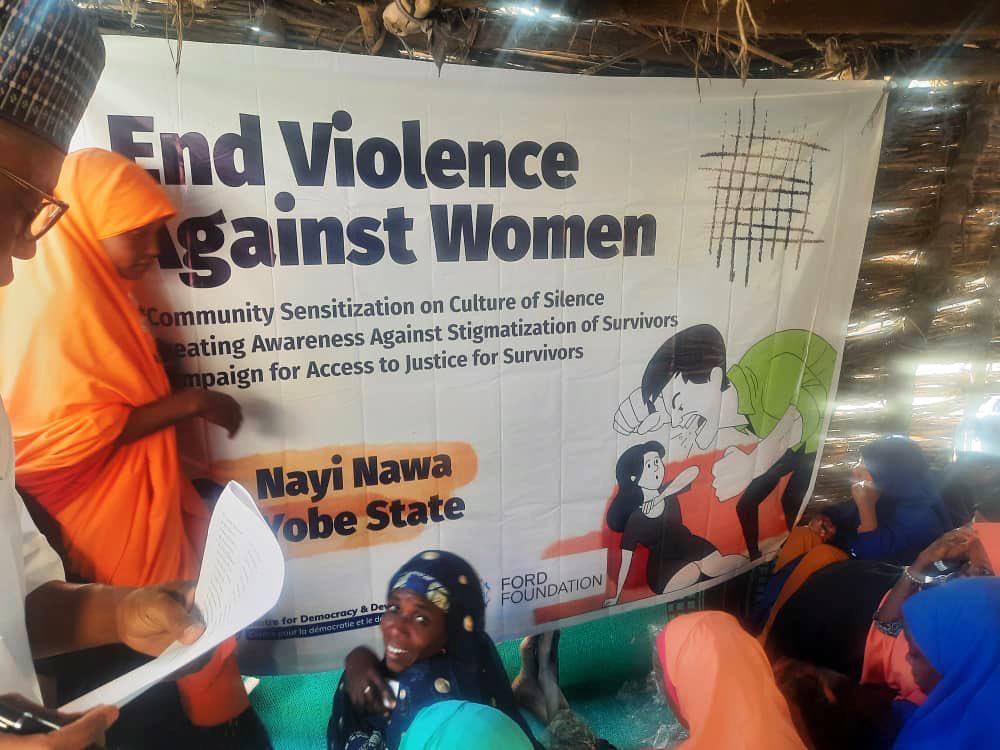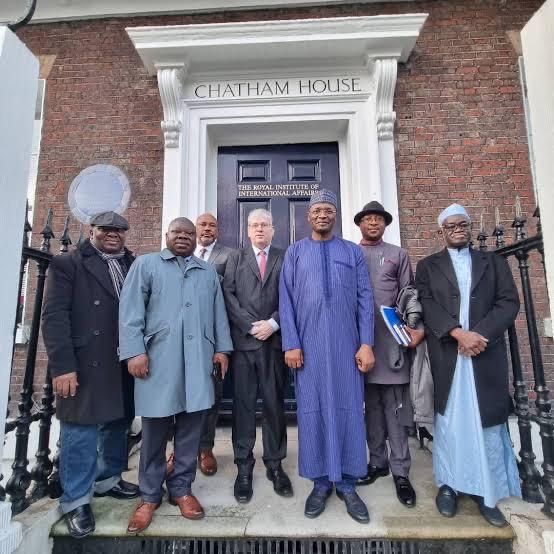By Kamil Opeyemi and Halimah Olamide
To me the integrity of INEC is still in good shape, pending the legal validation of all the allegations – Dr. Saminu Umar
Τhe Royal Institute for International Affairs, popularly called the Chatham House, did not mince words days ago when it came out with a damning conclusion on the just completed Nigeria’s presidential and national Assembly elections.
With the huge promises he presented the elite audience at the meeting he had with the Chatham House in January this year, the boss of the Independent National Electoral Commission, Mahmood Yakubu, a professor of political science, had wetted the appetite of the international community for what was expected to be a hugely successful, credible and flaw-free poll.
This was projected to be a departure from Nigeria’s culture of votes allocation as against elections in the past.
“The INEC’s performance and controversies over these results mean that the electoral reforms and lessons declared to have been learned were not fully applied,” Chatham House said in its report by one of its Associates, Dr. Leena Koni Hoffmann.
The independent policy institute was referring to Yakubu’s full statement earlier in January where he had declared that the commission had taken into considerations, previously held elections in Nigeria and what constituted the errors that meant lack of integrity.
The INEC boss had said that largely, the commission had drawn up its perfection plans on the lessons of the discredited exercises of the past.
Chief of the promises were that the Bimodal Voter Accreditation System (BVAS) would be used to conduct elections and that results of the polls would be transmitted electronically.
Majority of Nigerians, boxed into apathy corner by the usual election day brigandage, which involved ballot box snatching, manipulation of already computed results, killing and maiming of opponents, were buoyed by these possibilities and hence their resolve to be part of this exercise.

Of course, Chatham House’s submission that “The INEC’s sub-optimal performance must be taken seriously because Nigeria’s path to recovery and stability must follow the way of accountability and electoral integrity” stands a clarion call on the umpire to do the right thing.
Until Saturday, February 25, INEC appeared the “good boy” in the estimation of many of Nigerians who came out to vote. But the narratives and the reputations began to wane when, hours after elections had been concluded at thousands of polling units and results declared, the much-touted INEC Election Results Viewing portal remained almost static. What happened to iREV?
Section 60 of the Electoral Act states that “the presiding officer shall, after counting the votes at the polling unit, enter the votes scored by each candidate in a form to be prescribed by the commission as the case may be”.
Section 60 (5) of the Act states that the presiding officer shall transfer the results including total number of accredited voters and the results of the ballot in a manner as prescribed by the commission.”
There is a very strong and compelling assumption that the “prescribed manner” is the use of BVAS, which INEC introduced to ensure that the electoral process is credible. The BVAS was introduced by INEC in line with Section 148 of the Electoral Act, which gives INEC power to make guidelines and regulations to ensure the full effect of the law.
The submission by the Chatham House was to be bolstered further by the opinions of two United States diplomats, Johnie Carson and Mark Green who said even loyalists of the eventual winner could not but agree that the process was flawed.

The diplomats wrote, “At a time when the world is experiencing a democratic decline, Nigerians stood in line – sometimes for hours – for the chance to have their voices heard.
“Unfortunately, the National Democratic Institute/International Republican Institute Election Observation Mission – for which we were both observers – declared that this election ‘fell short of Nigerian citizens’ reasonable expectations.’
“Citizens were disappointed with the electoral process, including those who supported the candidates who were declared winners. Among other issues, many polling stations opened late, and poll workers reported material shortages.”
Thus, when Dino Melaye, a former Senator representing Kogi West, and agent of the Peoples Democratic Party at the Collation Centre, came hard on the INEC boss and his entire structure, he appeared to have won the hearts of many with his insistence that the commission must act true to its commitment to using technology which it said would remove all cases of doubt on the integrity of the exercise.
While some condemned Melaye, known for his exuberance and dramatizations in presenting the grievances of his party, many still argued that Melaye stood for the right thing demanding that the commission kept to its promise.
The insinuations are that INEC succumbed to some pressure to allow manipulations of the results especially in the strongholds of some candidates to give an edge to another candidate.
Not even the explanation by INEC, which many also adjudged to have come very late, was enough to clear the air on the credibility cloud that had already formed over the whole exercise.
Consequently, that gave room for global attention on the country’s poll and the expression of disbelief on the integrity of the exercise.
Jim Risch, a United States senator had said, “The electoral process in Nigeria is widely viewed as deeply flawed by election observers and many Nigerians,” condemning the administration in his country for rushing to congratulate the winner.
“It is disappointing to see the administration rush to embrace the result while the full picture of what occurred during this electoral process is yet to be seen.

“I’ve expressed similar concerns related to other areas of our relationship with the Nigerian government. I worry this rush to judgement will undermine our ability to be an effective partner to all Nigerians, especially given their longstanding desire for democracy.
“With Nigeria heading into state-level elections in just a few days (March 11), it is important that the United States be more concerned with supporting the Nigerian people and their democratic aspirations than embracing the Nigerian government,” Risch had said
Idayat Hassan, Executive Director of the Centre for Democracy and Development had told NPO Reports that “INEC’s conduct of the elections in the area of logistics deployment fell way short of the expectations.”
As enumerated above, Hassan said Nigerians’ expectations were very high for these polls, especially following repeated assurances from the Commission that it was ready.
“The logistics problems made the process chaotic, and difficult for eligible voters in many parts of the country.” Said the CDD boss.
The organisation which also sent out thousands of observers said its records show that late arrival of INEC personnel was part of the beginning of the challenges.
Hassan said, “Our observer data shows for instance that poll officials had arrived in less than 50% of polling units at 12:30pm on Election Day.”
In today’s Nigeria with an expanding politically charged young voters, the reliance on deployment of technology was a major source of attraction.
A new generation of voters, many of them voting for the first time, held on to the promise that technology, as promised through BVAS and iREV, would do the magic and that their votes would count.
And then, the glitch!
“Apart from the logistics problem, there were glitches with the IReV. Many of the political actors who had built their confidence around the transparency of the results, which the IReV offered were understandably disappointed, and have started challenging the results in courts,” said Hassan
All these are the basis for the impending legal battles which the defeated candidates and the winner are set to face in the days to come.
This is even in spite of the fact that the results, after being uploaded finally by INEC, have confirmed that Bola Tinubu of the All Progressive Congress, indeed won the election.
With Tinubu’s 8,794,726 votes; Atiku Abubakar of the Peoples Democratic Party’s 6,984,520 Peter Obi’s 6,101,533 votes, some analysts are of the belief that the outcome of the poll may not have been substantially different from what eventually was released even if INEC had kept to its promise to use all it promised to pass the credibility test.
And that then tends to cast pall on the enthusiasm for greater expectations in the next round of the elections at the sub-regnal level.
The March 18 state assembly elections (originally slated for March 11) comes under serious focus. The controversies that surrounded the National Assembly and presidential polls are still hanging in the air with the major contenders already poised for legal battles.
“Our expectations for polls at the sub-national level is that INEC would have picked up the key lessons from the challenges, which came up during the February 25 elections. “In terms of voting patterns, the trend which we saw in the presidential poll would likely be different in the states. Local political, economic and cultural interests would play a big role in who wins or get more seats in the State Houses of Assembly,” said the CDD boss
Dr. Umar fears violence in the March 18 elections giving alleged desperation of interest groups.
He said, “The sub-regional polls is likely to be marred with violence and irregularities compared to presidential election, because of the seeming desperation of the various interest groups.”
Another issue that has sparked controversy is the decision by INEC to reconfigure the BVAS machines. Some have argued that the reconfiguration of BVAS is part of a game plan for manipulation. This is more so with many Tech experts who have volunteered information on the fact that there is no need for such exercise.
“The partisan actors are always trying to undermine and delegitimize the electoral umpire,” said Hassan of CDD in her submission.
She said INEC itself has given the impetus for this lack of trust to fester considering what she described as “mismanagement of the elections.”
“My fear goes beyond disinformation but more the way trust in democracy is either being deliberately eroded by all actors. We should be worried either it’s caused by failure of institutions or maligned actors. When citizens lose hope in democracy, then Nigeria is in deep danger.”
Dr. Umar, in line with Hassan’s words above, also concluded that such insinuations are rife because of the existing poor level of trust among the citizens.
He said, “About the reconfiguration, we are in Nigeria, where nothing is impossible, but I doubt if INEC is planning something that bad.”
Notwithstanding, the various opinions that tend to condemn the exercise, many still believe that the 2023 elections are far better in terms of credibility than the country’s previous exercises.
In her submission, Hassan said despite the hitches, and challenges in these elections, the results in many parts of the country have led to a significant reconfiguration of the political map.
“Political parties, which were before now in the fringes of the political process, were able to win in states in which they were not expected to win. Labour party defeated the APC in Lagos, which is considered the latter’s stronghold. As it stands, eight different political parties will be sharing the space in the 10th National Assembly.
“These are not realities which can be overlooked; while the elections faced issues and challenges, we think the various infractions happened in more than enough because it. The Commission apparently overpromised and under-delivered.”
No doubt, in line with the CDD boss’ submission is the fact that the exercise recorded ‘casualties’ from unexpected quarters, going by what used to be the practice.
No fewer than four governors lost their bid to move to the senate after their tenures.
Indeed, a social media user had called to question, Mr. Peter Obi’s rejection of the entire exercise when he displayed his photo with Senator-elect, Ireti Kingibe, who won the seat for the FCT defeating a veteran, Phillip Aduda.
The position is that if Obi found it good to rejoice with Mrs. Kingibe, he must be cautious not to dub the entire process as fraudulent.
Dr. Saminu Umar, of the Department of Mass Communication of the Bayero University, BUK, Kano, would want Nigerians and the international communities and organisations to await the verdict of the court over the elections petitions before jumping into what he thinks are hasty conclusions.
“To me the integrity of INEC is still in good shape, pending the legal validation of all the allegations,” he said
As Nigerians return to the polls again on Saturday, it appears necessary to take into account what the CDD called its framing of some of the challenges that showed in the presidential and national assembly polls.
“In the build-up to the polls, CDD had framed the issues in the elections in terms of the five Is; Identity, Insecurity, Institutions, Insecurity, Information disorder and Inter/intra-party squabbles. These factors apparently comingled to shape the process and the outcomes of the elections. Any objective analysis of the polls would have to take an in-depth role of how these issues shaped the process,” Mrs. Hassan said
How some of these issues play out and how INEC plays its role in the all-important exercise will form the focus of those whose attentions would be riveted on Nigeria on Saturday

